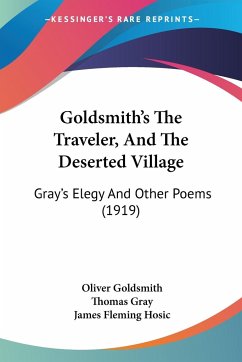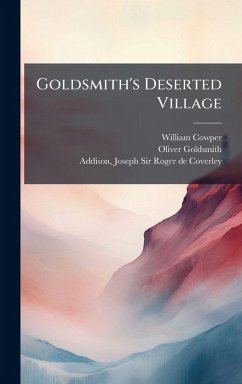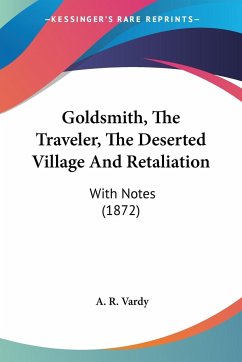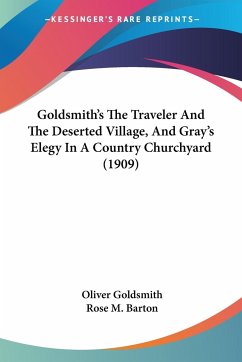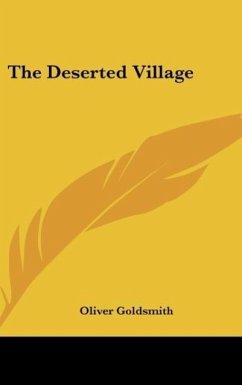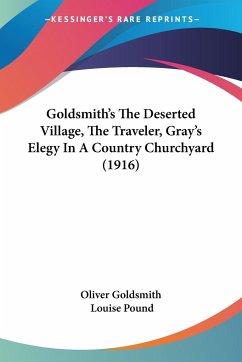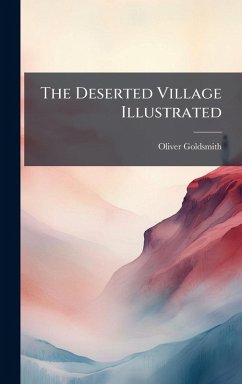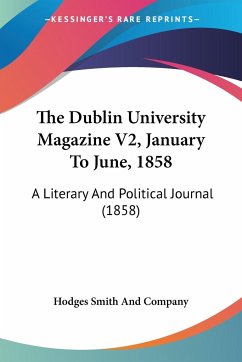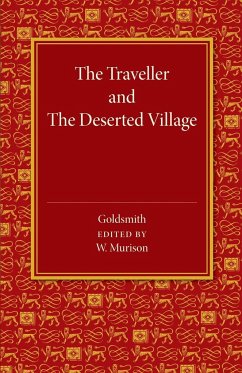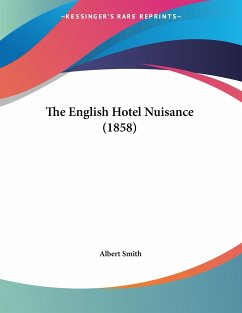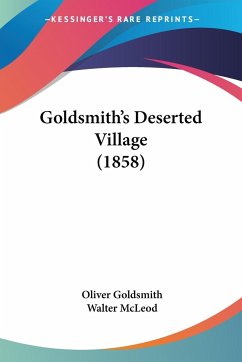
Goldsmith's Deserted Village (1858)

PAYBACK Punkte
11 °P sammeln!
Goldsmith's Deserted Village is a classic poem written by Oliver Goldsmith in 1770. The poem describes the decline of a small village in rural Ireland, as the wealthy landowners gradually force the poor farmers to leave their land and seek work elsewhere. Goldsmith portrays the village as a once-thriving community, full of life and activity, but now abandoned and desolate.The poem is divided into four parts, each of which explores a different aspect of the village's decline. The first part describes the natural beauty of the village and its surroundings, while the second part introduces the va...
Goldsmith's Deserted Village is a classic poem written by Oliver Goldsmith in 1770. The poem describes the decline of a small village in rural Ireland, as the wealthy landowners gradually force the poor farmers to leave their land and seek work elsewhere. Goldsmith portrays the village as a once-thriving community, full of life and activity, but now abandoned and desolate.The poem is divided into four parts, each of which explores a different aspect of the village's decline. The first part describes the natural beauty of the village and its surroundings, while the second part introduces the various characters who once lived there. The third part focuses on the impact of the landowners' greed and the resulting poverty and misery of the villagers. Finally, the fourth part offers a vision of hope, suggesting that the village could be restored to its former glory if only the landowners would change their ways.Throughout the poem, Goldsmith uses vivid imagery and powerful language to evoke the beauty and sadness of the village. He also employs a range of poetic techniques, including rhyme, meter, and metaphor, to create a memorable and moving work of literature.Goldsmith's Deserted Village has been widely praised for its social commentary and its lyrical beauty. It remains a popular and influential work of poetry, and is studied by students of literature and history around the world.This scarce antiquarian book is a facsimile reprint of the old original and may contain some imperfections such as library marks and notations. Because we believe this work is culturally important, we have made it available as part of our commitment for protecting, preserving, and promoting the world's literature in affordable, high quality, modern editions, that are true to their original work.



